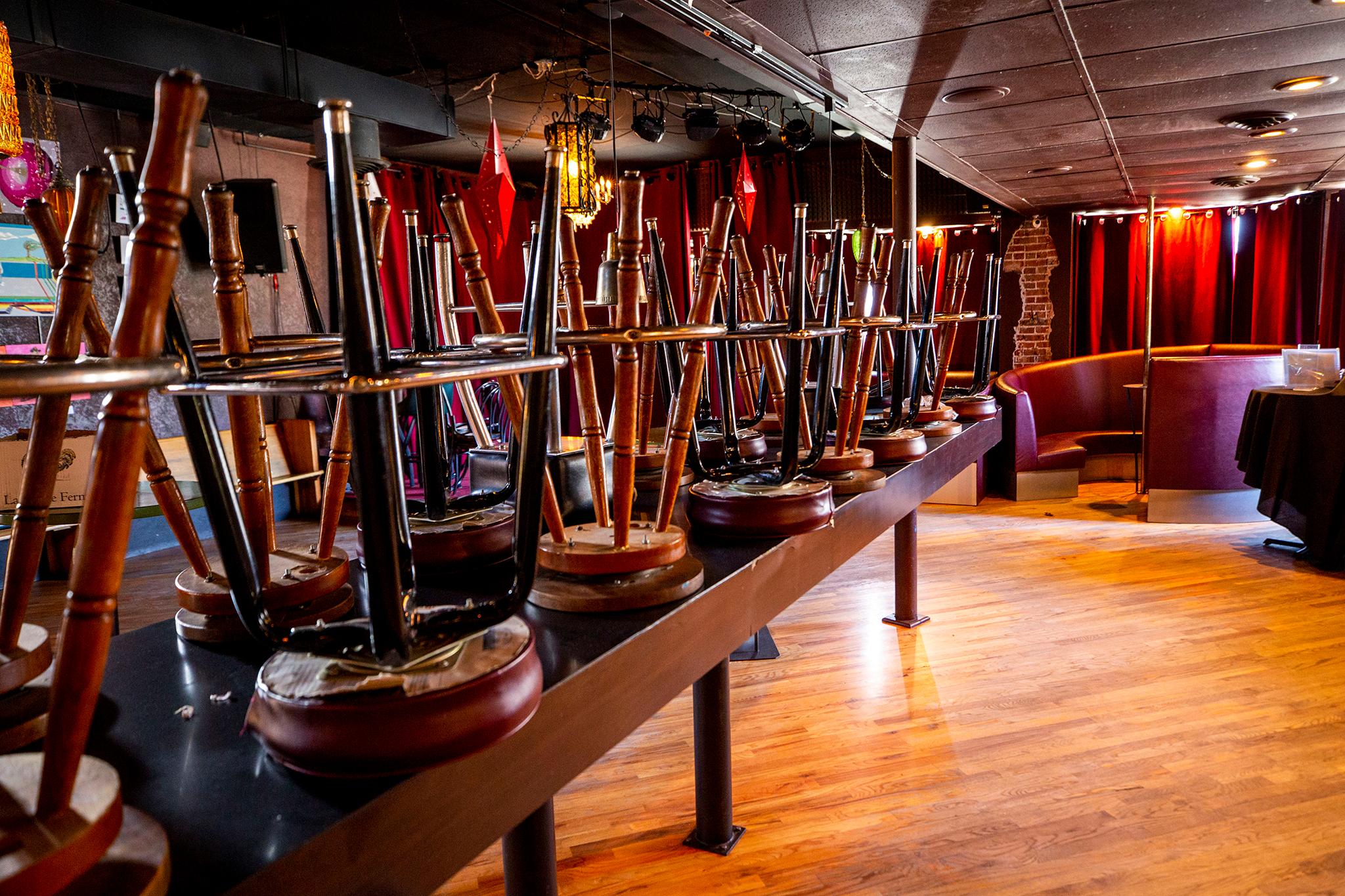Last week, Governor Polis announced that starting April 16, individual counties would be allowed to set their own COVID-19 restrictions.
On Wednesday, Mayor Hancock laid out what new restrictions would look like in Denver.
The biggest changes include Denver doing away with its outdoor mask requirements, which takes effect immediately (face coverings will still be required for indoor public settings and public transit), and restaurants being allowed to operate at 100 percent capacity if social distancing could be maintained.
The shift to less restrictive COVID requirements is partially a response to improving vaccination rates. Nearly 42 percent of Denverites have received at least one vaccine dose, and 22.8 percent have been fully vaccinated. While Denver's positivity rate remains less than 5 percent, cases and hospitalization rates are rising.
"Until the vaccines become more widely and readily available, it's important to keep these measures in place so that we can keep a lid on the spread of this virus," Hancock said during the press conference announcing the new public health orders, saying the city was monitoring COVID-19 variants, which are "more transmissible and potentially deadlier" than the original strain. Hancock asked that Denverites continue to wear masks, avoid large groups, social distance and get vaccinated to help mitigate the spread of the virus.
"We are dealing with a different landscape now than we were dealing with this time last year or even last fall," Hancock said. "The threat is lessened today for older adults & other vulnerable populations thanks to the vaccine, but more transmissible and potentially deadlier variants are here.
Bob McDonald, executive director of the Denver Department of Public Health and Environment, said COVID-19 cases are different than they were last year. Last year, cases were primarily in older demographics. The people being infected now, he said, are generally from a younger population. Medical treatment is also better.
Still, he said it's important not to dismiss the rise in cases. McDonald said numbers in Denver are still climbing largely due to more infectious variants.
"Just like the face covering itself, it's not just for you. It's not just for us as individuals. It's for everyone else," he said. "When we get vaccinated we protect ourselves against the virus, but we're also protecting others."
He added that more vaccinations give the virus less room to mutate.
"The more it mutates, the more all of us are at risk because the vaccine we received might not be effective anymore," he said.
Here's how Denver's new orders affect you.
Restaurants and Bars
Restaurants can now open at 100 percent capacity, though they're still required to limit group size to ten and maintain 6-feet distancing between tables. For a lot of restaurants, and particularly smaller ones, the six-foot requirement is quite limiting.
Bars that don't serve food can now reopen. The capacity limit for bars is 25 percent, or 75 people, whichever is fewer. Last call for booze will move from 1 a.m. to 2 a.m.
Outdoor events
Outdoor events of under 5,000 people can occur, albeit with a city-approved mitigation plan. Outdoor events with more than 5,000 people can also occur with the city's approval. Large outdoor events and things like festivals, markets, the Denver Zoo, the Denver Botanic Gardens, sporting events and outdoor concerts can now accommodate more people, if they so choose.
Outdoor patio expansions
Businesses that temporarily expanded their outdoor spaces into streets, parking spaces and sidewalks can use them until October 2021.
Gyms
Gyms, bowling alleys, indoor pools and other indoor fitness and recreation centers can now operate at 100 percent capacity, as long as 6-foot distancing is maintained.
Sports
Group organized sports, i.e. activities like intramural sports leagues and sports camps, now have a 50-player cap per activity, excluding refs and other required staff. This is up from a 25-person cap.
Rafting tours
Guided outdoor recreation like river rafting trips, guided hikes and ATV tours can operate in full. This is up from a 10-person cap.
House parties
Personal gatherings are based on CDC guidelines. As of April 14, 2021, vaccinated individuals can gather indoors with other vaccinated individuals without masks. They may also visit low-risk unvaccinated individuals without masks.
Museums and concerts
Indoor standing-room venues and events -- think museums, galleries, and small music venues -- can now operate at 50 percent capacity or with no more than 175 people standing, up from 50 people. Whether that's enough people to be worth reopening may depend on the venue. For some, it may not make economic sense to open even with these loosened restrictions.
Theatre
Seated indoor events and venues, including cinemas, concert and lecture halls, and theatres, may now operate at 100 percent capacity with 6-foot distancing between groups of up to ten. That's up from 150 people seated.
This means that large indoor venues like the Fillmore and The Denver Performing Arts Complex can request higher capacity. That doesn't necessarily mean shows will reopen soon. Denver Center for the Performing Arts has postponed or canceled shows through the summer. It does, however, allow venues more time to plan their re-openings. As with restaurants, the 6-foot distancing mandate might be too limiting for smaller venues to be worth reopening.
Red Rocks
Red Rocks is reopening this spring and might soon be able to expand capacity.
Libraries
DPL has now reopened most of its branches. While libraries will largely function as they did pre-pandemic, meeting rooms, study rooms and ideaLABs will remain closed, and in-person events will remain suspended.
Large venues
Rockies games opened earlier this month to 21,363 fans, or about 42.6 percent of Coors' capacity. It's unclear whether the stadium will be allowed to expand its capacity, now that outdoor event guidelines have loosened. Rapids games will reopen at DICK's Sporting Goods Park to almost 8,000 fans on April 24. Similar to Coors Field, loosened restrictions for outdoor events might allow the park to expand capacity going forward.
Those Trader Joes lines
While you may still have to wait in line to get your Everything but the Bagel Spice, the lines may be a bit shorter. Retail capacity may now increase to 75 percent capacity, up from 50 percent. That includes boutique stores and large-scale retailers.
Offices
While a lot of workplaces are still remote or remote optional, those that are going back to in-person work can now operate at 75 percent capacity.












